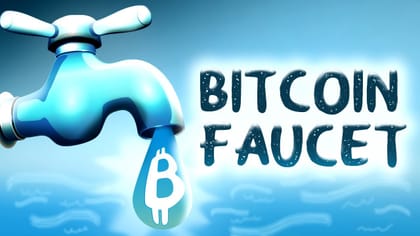Can DeFi and CeFi coexist? This is the main question discussed during a debate by experts, from across the crypto industry, on January 19th.
The question isn’t easy to answer, nonetheless, people from the crypto industry managed to come to an agreement by using the key themes of education, transparency, and access.
To put things shortly - centralized and decentralized finances can coexist. On top of that, a new mixture of financial services and products will be present for the users in the future.

Did you know?
Want to get smarter & wealthier with crypto?
Subscribe - We publish new crypto explainer videos every week!
What is a Bitcoin Faucet? Pros & Cons Explained (With Animations)


In the video, there were 5 experts from around the world, and even a few of them came from a background of traditional finance. However, they all do believe that the future of finance is decentralized.
It also means that existing institutions can try to leverage blockchain technology, and underlying infrastructure in order to provide the same services that they’re providing today.
Therefore, the institutions should treat DeFi as an opportunity.
The Global Blockchain Business Council covers the questions regarding banking the unbanked, adoption, and whether innovation can disrupt the traditional banking services.
Financial incorporation could be accessible due to the onboarding techniques and clear-cut regulation. The biggest blockchains - Solana and the Bitcoin Lighting Network, came to light similarly as Uniswap and DeFi protocols. Also, the need for additional education and transparency in the cryptocurrency area, was pointed out throughout the video.
Mary Beth Buchanan, chief legal officer at crypto risk and intelligence Merkle Science president, had a few comments about education:
A lot of people are not being served in traditional finance. The winner in the disruption race will be the project that has the ability to reach those in the community who are not currently accessing DeFi, and there has to be education.
Founder and president of the public blockchain Orbs, Daniel Peled, said “the industry is early”, after emphasizing his excitement to bring financial inclusion to a lot of people in the world.
He and Ambre Soubiran, CEO of digital asset data provider Kaiko, both agreed that “many people don’t have access to DeFi applications; the products are complicated and tech-heavy. People still don’t know how to secure their funds securely.”
Peled had a different view on the situation:
There is huge quantitive easing and 70% of all the money in the world has been printed in the past two years. The young don’t hold existing scarce assets such as real estate, equity, or gold; and they are not accredited investors who can get in on opportunities at the early stage. They (the young) are the ones adopting DeFi because they see the opportunities compared to other alternatives.
Bitcoin has a defined issue rate that makes the monetary network more transparent and equitable for members as the first successful separation of money from the state. And, in the end, it was created to address these difficulties.
The CEO of digital currency broker Genesis Global, Micheal Moro had the same thoughts as Peled saying that “the user interface and experience isn’t great as you have to be fairly tech-savvy to be able to engage directly with Defi today. It generally needs to become a lot easier for folks to engage.”
After a while, the group came to the conclusion that, yes, education and onboarding is a very essential helping hand for greater financial inclusion.
Moro and Soubiran talked about ramps (a way to connect our physical world with the digital one, including their currencies):
There is an opportunity for the existing institutions to leverage blockchain technology and the underlying infrastructure in order to provide the same services they are providing today.
Lastly, the former head of derivatives markets and commodities at Borsa Italiana, Nicolas Bertrand, told his insights about the DeFi and CeFi future, and agreed that the level of innovation could disrupt traditional CeFi services by adding “what happened to the telegraph after the advent of computers?”






















